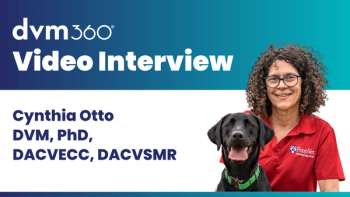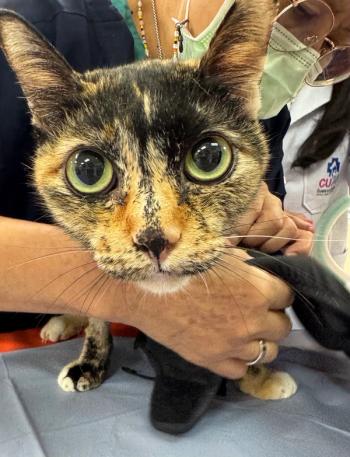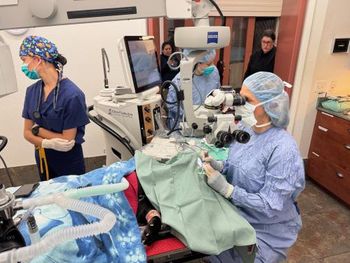
Corticosteroid Therapy for Equine Asthma
Information compiled from several studies indicates that inhaled and systemic corticosteroids are similarly effective for treatment of equine asthma.
Equine asthma is a chronic respiratory disorder with mild to severe signs. Anti-inflammatory drugs, including glucocorticosteroids, are commonly chosen for treatment.
Researchers in Italy and the United Kingdom recently performed
Literature Search
The investigators performed an extensive literature search for studies evaluating the effect of corticosteroid treatment on clinical equine asthma. They included old or alternative names for the condition, including chronic obstructive pulmonary disorder (COPD), heaves, broken wind, inflammatory airway disease, and restrictive airway obstruction. Specific drugs used to treat equine asthma were also searched, including beclomethasone, budesonide, dexamethasone, fluticasone, isoflupredone, prednisolone, and prednisone.
Of the 5120 articles found, only 6 studies used a clinical scoring system to evaluate the effectiveness of inhaled and/or systemic corticosteroids. The studies dated from 2003 to 2016 and assessed a total of 80 horses with restrictive airway obstruction. Of these, 3 studies evaluated both inhaled and systemic corticosteroids, 2 studies involved only systemic corticosteroids, and 1 study involved only inhaled corticosteroids.
A New Clinical Scoring System
The authors determined that the 6 studies cumulatively offered an adequate sample size for analysis. Most studies used a scoring system developed in 1998 to quantify the severity of 2 clinical signs, nasal flaring and abdominal effort. From this, the authors developed the Improved clinically Detectable Equine Asthma Scoring System (IDEASS) with an 8-point scale to identify equine asthma cases as normal, mild, moderate, severe, or very severe. They proposed that a 1-point difference in the scale represented the smallest change in clinical signs that could be detected.
Inhaled Versus Systemic Corticosteroids
Combined results from the 6 studies indicated that corticosteroid administration significantly improved clinical equine asthma, reducing clinical signs by an average of 29.5%, or 2.4 points on the 8-point scale. Inhaled and systemic routes of administration offered similar efficacies.
RELATED:
- Equine Cushing Disease Around the World
- New Treatment Helps Horses Breathe Easier
The dose and frequency of administration directly affected the degree of clinical improvement; however, other variable factors among the studies did not significantly affect outcome. These included the method used to induce clinical signs, type of inhaler device used, use of dust-reduction methods, and professional level of personnel administering treatment.
A Word of Caution
Because the evaluated quantitative studies all focused on horses with severe asthma (reactive airway obstruction), the authors cautioned against applying the results to horses with less severe inflammatory airway disease. Also, while some systemic corticosteroids appeared to alleviate clinical signs more quickly than inhaled forms, systemic corticosteroids have potentially serious adverse effects. Therefore, the authors recommended inhaled therapy for treatment of equine asthma.
They also expressed a need for future studies to quantitatively evaluate the benefits of combined therapy using corticosteroids and bronchodilators, a treatment regimen they consider to be “far more applicable to clinical practice.”
Dr. Stilwell received her DVM from Auburn University, followed by a MS in fisheries and aquatic sciences and a PhD in veterinary medical sciences from the University of Florida. She provides freelance medical writing and aquatic veterinary consulting services through her business,
Newsletter
From exam room tips to practice management insights, get trusted veterinary news delivered straight to your inbox—subscribe to dvm360.






